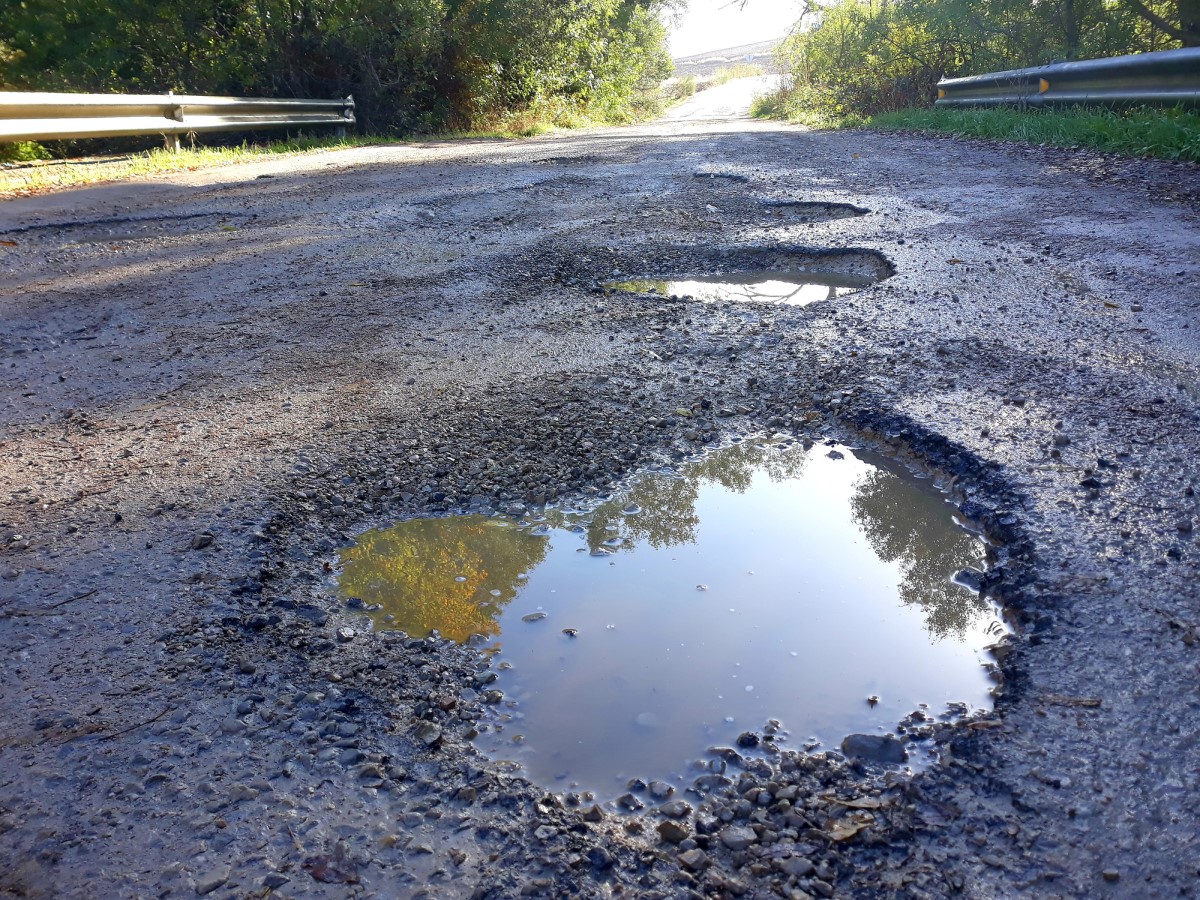Getting Compensation for Pothole Damage to Your Car
By
Richard Dahl
on March 29, 2023
| Last updated on March 30, 2023
The official first day of spring on March 20 was especially welcome this year for Midwesterners, who’ve endured an especially long and harsh winter. But the weather-related headaches are not yet over. It is now pothole season for motorists—and one of the worst in memory for some areas, such as Minnesota.
While potholes may be more numerous in the north country, they can occur anywhere. No matter where you live, the jarring “ka-THUNK” when you hit a pothole is startling. In most cases, that’s the only unpleasantness you’ll experience. But of course they can damage your car. Repair bills average $306, although a particularly bad pothole encounter can result in a bill of $1,000 or more.
Steps to Take
If you find yourself on the ugly end of a pothole encounter, there are a few important steps you’ll want to take immediately:
- Photograph the evidence. The first thing you should do is take pictures of the pothole, including close-up and more distanced shots of the surrounding area. If there is damage to a tire or any other part of your car, you should photograph that as well.
- Check your insurance policy. If you’re one of these unlucky drivers, one of your next thoughts is probably about whether you can be compensated for the damage. The good news is that, in most cases, you can. If your auto insurance includes collision coverage, you will usually be covered. But there are time limits for filing a claim and they vary from jurisdiction to jurisdiction. In Minnesota and California, for instance, claims must be filed within six months.
- Weigh pros and cons of filing a claim. There may be a downside to filing an insurance claim, even if you are covered. If the estimated damage is less than your deductible (typically $500 or $1,000), your best move may be to pay out of pocket. Also, filing a claim could affect your insurance rates. Insurers consider pothole-related damage to be a single-vehicle accident unless there is evidence that another vehicle caused you to hit the pothole.
Look to the Government
Whether you have collision coverage or not, you can often be compensated by whatever jurisdiction is responsible for the roadway with the pothole—though the reimbursement policies vary widely.
States and cities in regions that experience icy winters generally provide claim forms that motorists may fill out to receive compensation for damages caused by roadway defects. Some provide forms more narrowly focused on potholes. St. Paul, Minnesota, for instance, has a separate pothole page on its website, including a claim form. The Massachusetts roadway-defect page includes a hotline phone number for reporting potholes.
It’s worth noting that driver-friendly compensation policies are not restricted to states we think of as “wintery.” California, for instance, offers reimbursements of up to $10,000 for pothole-damage claims.
But getting compensation from the government is a little more complicated than filling out a form and waiting for the check to arrive. While the government is responsible for maintaining roads, but you’ll need to show that the government failed to reasonably maintain the road in order to win your claim. You will also need to show that the government had knowledge of the poor road condition and failed to fix it within a reasonable length of time.
This is why it is important for drivers to report potholes on the forms provided by the government. If you’re in luck, someone has reported the pothole that damaged your car—and you might help another driver receive compensation for a future pothole encounter by doing the same.
Meanwhile, a friendly reminder that the most important thing is to drive safely. You may have become a pro at veering left and right to skirt the potholes, but roads are not ski slopes. It is better to reduce your speed rather than slalom-ing around potholes, to make sure that you won’t be causing a worse accident with oncoming traffic.
Related Resources
You Don’t Have To Solve This on Your Own – Get a Lawyer’s Help
Meeting with a lawyer can help you understand your options and how to best protect your rights. Visit our attorney directory to find a lawyer near you who can help.






